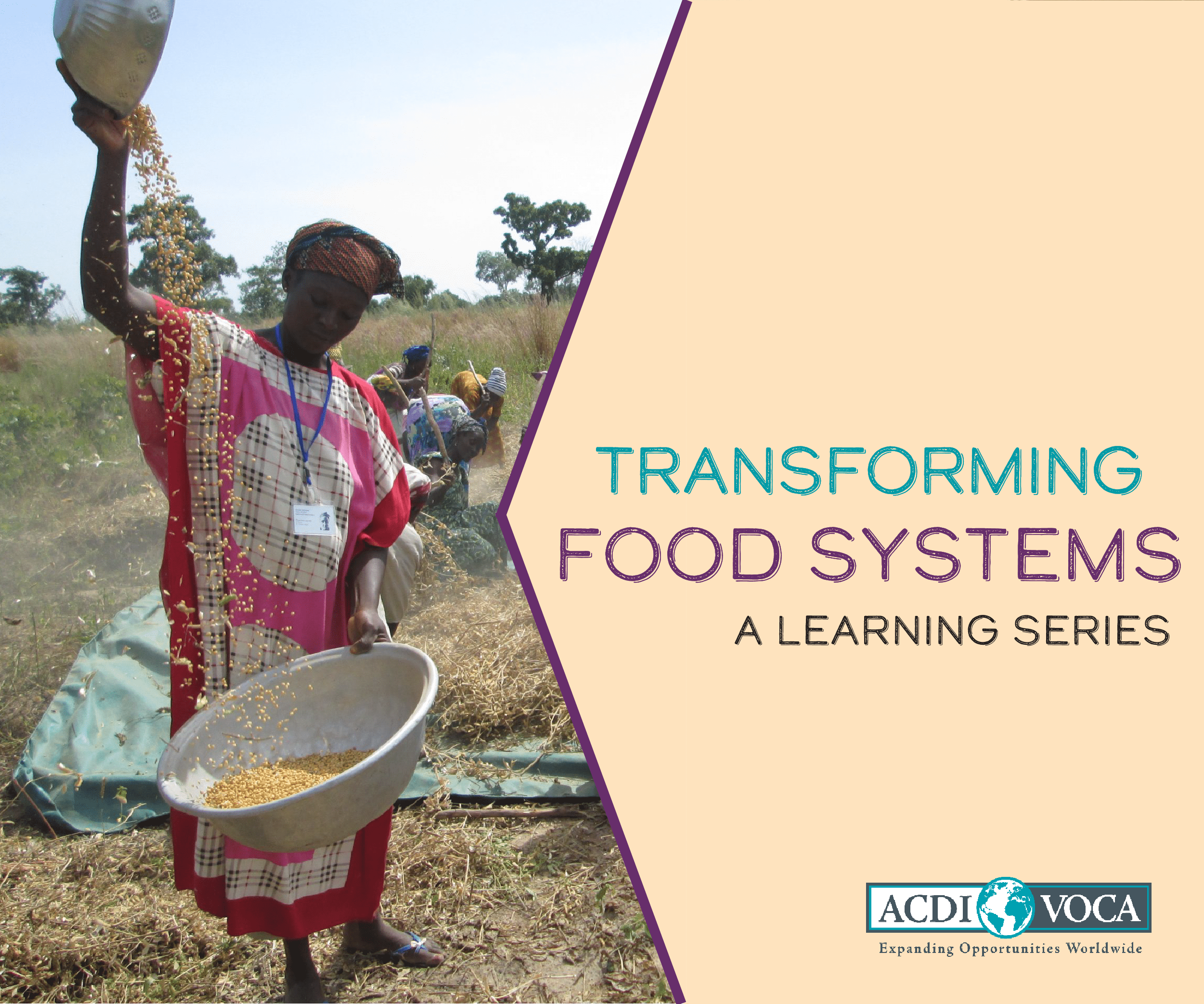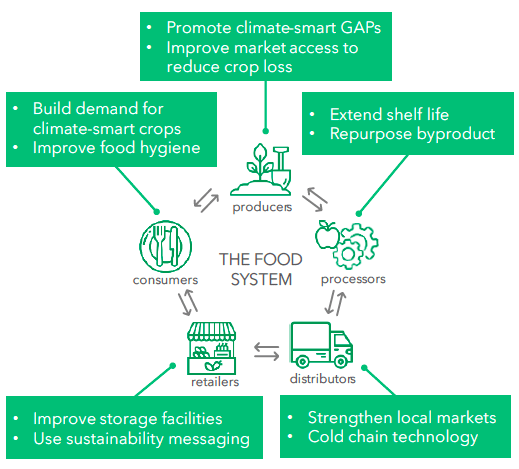
ACTION TRACK #2: SHIFT TO SUSTAINABLE CONSUMPTION PATTERNS
The Current Food System Is Unsustainable
Food is a vital component of human health, yet the current food system comes at an enormous cost to both human and environmental health, and to the livelihoods of the world’s poorest. The food sector accounts for 30% of the world’s total energy consumption, and 22% of greenhouse gas emissions. Nearly one-third of food produced globally never makes it into a mouth – an amount that could feed 2 billion people.
Beyond draining already-threatened natural resources, food waste has serious economic impacts along the food supply chain, representing over $1 trillion in value lost for producers, processors, and retailers. Losses are highest among the most profitable and nutritious foods such as animal products and fresh fruits and vegetables, which are highly perishable. Rather, ultra-processed foods—often containing few micronutrients and unhealthy amounts of salt and sugar—pervade the market due to their long shelf life and relative cheapness compared to fresh foods.

Opportunities to Increase Sustainability Across the Food System
ACDI/VOCA recognizes that transforming food systems to be more sustainable is an immediate priority to protect human and planetary health. This transformation does not need to come at the expense of economic prosperity; sustainable food systems transformation is an opportunity to support stable, diversified livelihoods, ensure resilience in agriculture and markets, and improve food security.
ACDI/VOCA utilizes opportunities to enhance sustainable production and consumption across the food system by:
• Demonstrating the economic benefits of resource-efficient production and processing practices
• Building demand for healthy, sustainable diets including local nutritious climate-resilient crops
• Building capacity of retailers to assess and meet consumer demand for eco-friendly products
• Promoting practices and technologies that reduce spoilage and loss among all actors
Food System Sustainability at Work in Our Projects
Reducing food waste through post-harvest handling: In Burkina Faso, the USAID-funded Victory Against Malnutrition Plus (ViMPlus) Activity trained women’s groups on solar drying techniques to preserve green leafy vegetables for consumption throughout the lean season. Drying the vitamin-A rich leaves prevents waste in the rainy season, when they grow in excess, and allows households to save income in the lean season when vegetables are most expensive.
Promote consumption of sustainable crops and improve shelf-life: The Walmart Foundation-funded APFMRP II project in India, implemented by affiliate Tanager, has worked with farmer-producer organizations (FPOs) to develop nutritious and desirable millet products. The grain is less resource-intensive than many other staple crops grown in the region, and high in fiber and minerals. The FPO has also installed improved nitrogen-flush packaging technology, drastically increasing the shelf life of the millet products.
Access other stories in the Food Systems Series
“ACDI/VOCA’s Conceptualization of and Approach to Transforming Food Systems,” published 8/25/2021
“ACDI/VOCA Transforms Food Systems for Nutrition,” published 9/1/2021






